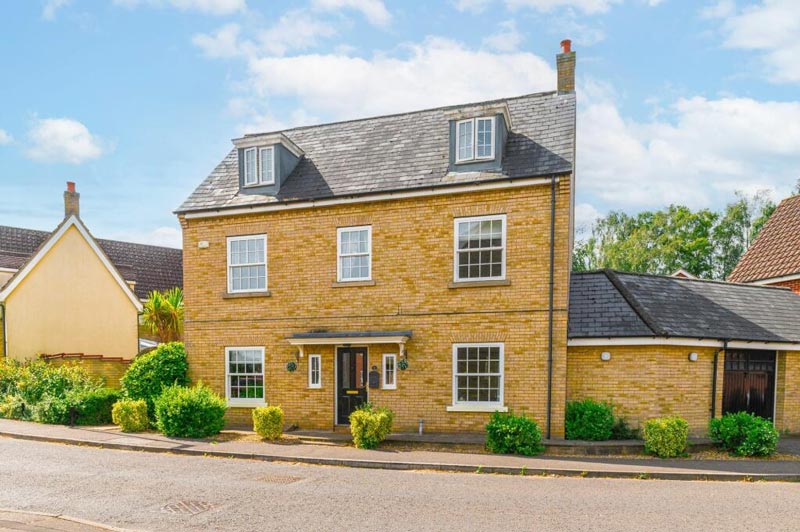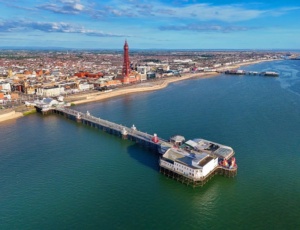First-time buyers rush to beat stamp duty deadline
In the Autumn Budget, Chancellor Rachel Reeves announced an increase to the amount of stamp duty home-movers and landlords in England will pay from the start of April next year.
Since September 2022, buyers of homes priced up to £250,000 have had an exemption from paying stamp duty. This is set to revert to previous levels from April, when stamp duty will be payable on homes priced above £125,000.
The threshold has also been raised for first-time buyers since 2022, with no stamp duty payable on homes priced up to £425,000. For homes priced above £425,000, first-time buyers currently pay 5% on the amount up to £625,000. If the home is priced above £625,000, the first-time buyers’ relief doesn’t apply. From April, the threshold will revert back to £300,000.
You can see how much the current rates are and use our Stamp Duty Calculator here.
Buyers rush to beat the deadline
We’re already seeing early signs of first-time buyers rushing to beat the April 2025 stamp duty deadline in more expensive areas.
Our property expert, Tim Bannister, says: “With stamp duty thresholds in England lowering from April, we’re seeing early signs of first-time buyers reacting. In London and higher-priced areas, where first-time buyers are most likely to be affected, we’re seeing some pull forward their plans to try and avoid higher charges.
“In most other areas of England, which have a greater availability of stamp duty-free homes for first-time buyers, we’re seeing the opposite trend of some first-time buyers taking a pause for breath with no further help announced in the Autumn Budget. However, the long-awaited second Bank Rate cut should hopefully boost optimism amongst movers and help to improve affordability during 2025,” he adds.
Where will the stamp duty changes impact first-time buyers most?
First-time buyers in higher-priced areas of England are set to be more affected. In London, only 8% of homes for sale will be stamp-duty free for first-time buyers from April. It’s 24% in the South East, and 32% in the East of England.
These areas have seen an uptick in first-time buyer demand since the Budget, suggesting some first-time buyers are rushing to avoid paying higher charges. Before the Autumn Budget, first-time buyer demand in London was 28% ahead of last year – now, it is +31% ahead.
In the East of England, the trend has moved from +28%, to +32% ahead of the same period last year since the Budget, and in the South East, first-time buyer demand has ticked up from 23% ahead of last year pre-Budget, to 24% ahead post-Budget.
The upward trend compares with most other areas of England that have seen a decline in demand since the Budget, except for the North East.
Rising stamp duty charges are likely to have less impact in areas where there is already a wide availability of homes below the £300,000 threshold. More widely, there was little market support announced in the Budget to help first-time buyers, which could be contributing to some pulling back.
| Region | Average asking price | % of homes that will be stamp duty- free from 1st April 2025 | First-time buyer demand pre-Budget | First-time buyer demand post-Budget | Change in demand |
|---|---|---|---|---|---|
| London | £683,316 | 8% | +28% | +31% | +3% |
| South East | £471,477 | 24% | +23% | +24% | +1% |
| East of England | £416,724 | 32% | +28% | +32% | +4% |
| South West | £374,909 | 34% | +12% | +9% | -3% |
| West Midlands | £288,048 | 48% | +17% | +13% | -4% |
| East Midlands | £286,838 | 53% | +23% | +19% | -4% |
| North West | £259,792 | 58% | +18% | +14% | -4% |
| Yorkshire and The Humber | £249,708 | 61% | +12% | +10% | -2% |
| North East | £189,694 | 73% | +12% | +15% | +3% |
How long is it taking to buy a home?
It currently takes an average of 5 months (151 days) to complete a property transaction across Great Britain. This means that first-time buyers hoping to find their next home and complete before the stamp duty deadline in April 2025, need to act quickly and hope to beat the average length of time to complete a home purchase.
How much is stamp duty?
The amount of stamp duty tax you will need to pay depends on a wide range of factors, including how much you pay for the property, the location of the property, whether you’re a UK resident, and whether you’re a first-time buyer. It also depends on whether you’re buying a main home, a holiday home or an investment property.
When do you pay stamp duty and how is it paid?
Stamp duty tax is payable within two weeks of completing your sale. Your solicitor should handle the paperwork for you. If you would prefer to do it yourself, the Government guidance on how to go about it is here.
READ MORE: Our 2025 house price forecast



